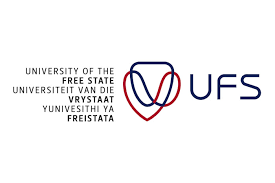University of the Free State Staff Member Holds Exclusive Diploma of Advanced Studies in Cardiac Arrhythmia Management in Sub-Saharan Africa
A staff member from the University of the Free State (UFS) is hopeful her newly acquired skills and knowledge, following her graduation with a Diploma of Advanced Studies in Cardiac Arrhythmia Management (DAS-CAM) and completion of a electrophysiology fellowship, will contribute to the improvement of cardiovascular services in the Free State and Sub-Saharan Africa.
Dr Kgomotso Moroka, the Acting Head of Department (HOD) for Cardiology in the UFS Faculty of Health Sciences, recently graduated with a DAS-CAM in June 2023. This distinctive postgraduate programme is offered by Maastricht University in collaboration with the European Heart Rhythm Association and the European Society of Cardiology. This is a two-year programme and Dr Moroka was part of the third cohort which comprised 32 electrophysiologists selected from over 20 countries worldwide.
Her achievement places her as the sole DAS-CAM graduate in Sub-Saharan Africa and the Free State region.
Electrophysiology, which studies the electrical influences and patterns of the heart is vital for treating patients with abnormal heartbeats caused by irregularities in the heart’s electrical pathway, resulting in either unusually slow or fast heartbeats.
Seizing a valuable opportunity
Dr Moroka emphasises that currently, there is a lack of electrophysiology services provided in both the public and private sectors within the Free State. She therefore anticipates that her newly acquired skills and knowledge will play a pivotal role in enhancing and improving the cardiovascular services offered in the province. She is also optimistic about contributing to the establishment of a department dedicated to Electrophysiology Training.
“I could not pass up the opportunity to engage with, learn and gain insights from seasoned world-class great minds of electrophysiology, who write the books we read and the very guidelines that we utilize in our daily practices. There was also an opportunity to be guided in research and the state-of-the-art cardiac clinical electrophysiology while also obtaining insights into how to develop a cardiac arrhythmia centre, biostatics, health economics, leadership skills and health technology assessment,” Dr Moroka explains regarding her motivation to enrol in the program.
“It was a challenging and exciting program that allowed participants to engage with the world-renowned experts in electrophysiology not only on a professional but also personal level. This program served not only to educate participants on clinical cardiac electrophysiology but served to empower us to fulfil roles as future leaders in electrophysiology and in our day-to-day roles,” she continued.
Addressing the diverse burden of cardiac diseases
Dr Moroka believes that this qualification will significantly contribute to local efforts to establish and develop a much-needed unique service, thereby advancing her career development locally and on the international platform. This qualification enables her to expand her clinical research pursuits on multiple fronts.
Dr Moroka underscores the substantial burden of ischemic heart disease with the associated risk factors such as uncontrolled high blood pressure, diabetes, elevated cholesterol levels and smoking. “There is a measurable burden of heart failure and valvular heart disease. In addition, from the research that we hope to embark upon, we hope to clearly define the burden of rhythm problems such as atrial fibrillation and other arrhythmias which are serious conditions. With the available skills and knowledge, we can begin to offer alternative adjunctive treatment that would have a significant positive effect on the morbidity and/or mortality of our patients.”
Dr Moroka points out that with the advent and advances in machine learning and digital health technology, we are in an exciting era of possibilities of obtaining valuable biological data and biometric parameters that would assist in the reduction of risk and prevention of a diversity of cardiovascular diseases and to guide clinical practice guidelines.
“The current focus is risk reduction, prevention of cardiovascular diseases and the establishment and development of personalized health care, with a growing interest in cardiovascular genetics and gene therapy. Who knows what the future will bring, but for now the focus is to work towards good health and disease alleviation,” she says.

